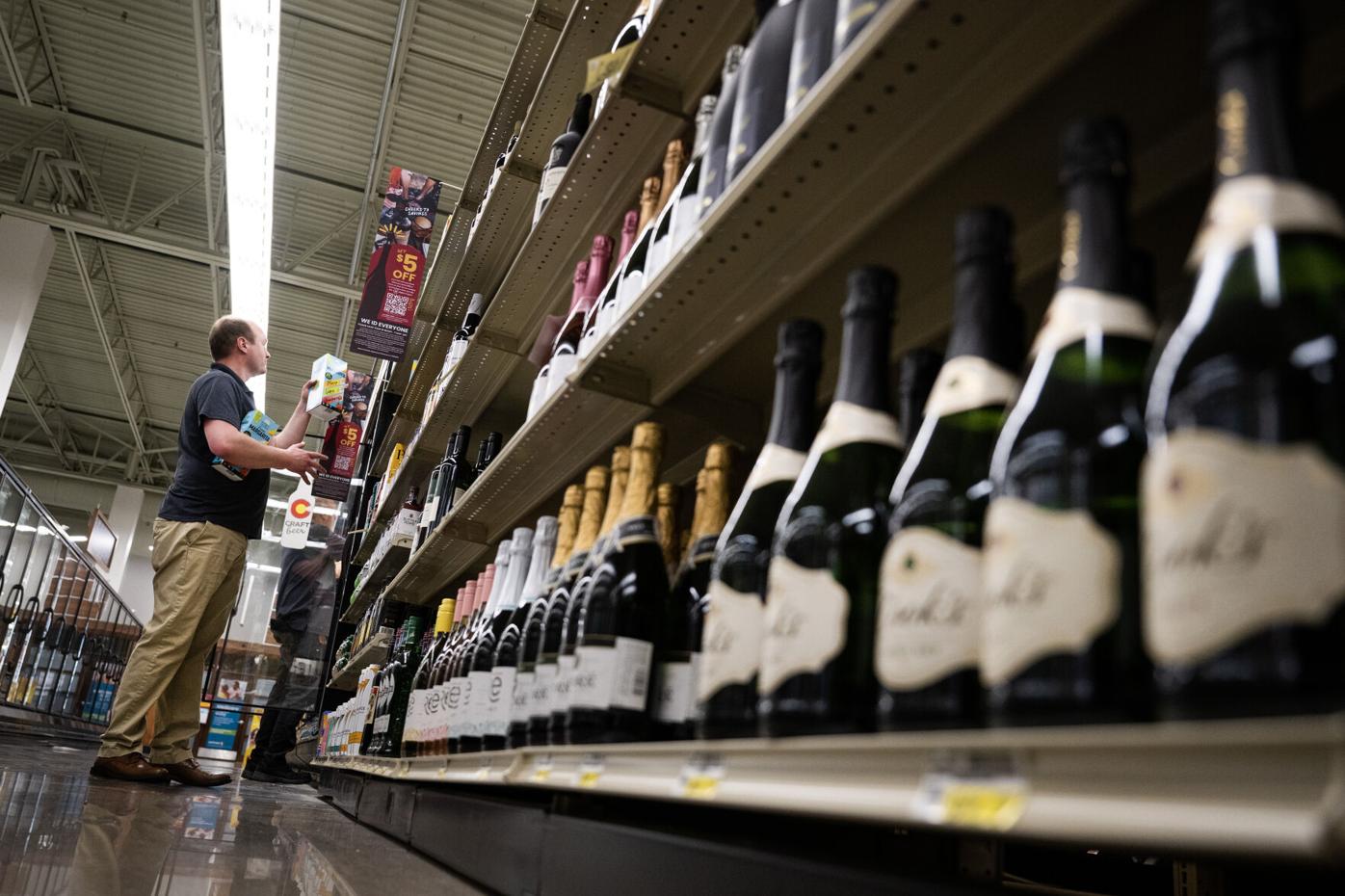Senate bill aims to stop the expansion of grocery stores selling hard liquor
The number of grocery stores selling hard booze under a quirky license initially designed for pharmacies would stop at about two dozen under a bill that advocates say is meant to save independent liquor stores.
Senate Bill 25-33 would put an end to any new licenses for pharmacies to sell spirits such as whiskey — known as Liquor License Drug Stores (LLDS) — and leave at about 25 the number of stores such as King Soopers and Costco that already do.
The bill is sponsored by senators Judy Amabile, D-Boulder, and Dylan Roberts, D-Steamboat Springs, who unsuccessfully backed a similar, though more comprehensive, bill last year.
At issue is whether independent liquor stores are able to survive the competition of grocery chains selling beer, wine and, with an LLDS, spirits, which had been the provenance of the former for decades.
That largely changed in 2022, when Colorado voters narrowly approved Proposition 125 that allowed grocery stores to sell wine, just a few years after they were allowed to sell full-strength beer.
Until then, grocery stores were limited to selling what was known as “near-beer” and “3-2 beer” because it could contain up to only 3.2% alcohol.
But an industry compromise happened around 2016 that laid out a number of concessions, in which groceries could eventually get more and more licenses to sell alcohol without taking the issue to voters.
That changed with Proposition 125 and store owners said the independent liquor industry has reeled ever since.
In 2024, liquor store owners made an unsuccessful effort with House Bill 24-1373 to lessen the sting of Prop 125 by eliminating the liquor-licensed drugstore license and convert them to malt beverage and wine retailer licenses — in essence, protecting liquor stores’ right to sell spirits by allowing only a single store in a grocery chain to do so.
Since then, “the problem for independent liquor stores has gotten worse,” Amabile told The Denver Gazette. “Stores are closing and we’d like to stop that. This isn’t a magic bullet but hopefully it provides a longer-term solution and help them continue in business.”
A Denver Gazette report in December noted that hundreds of independents were closing since that vote as a result of the competition with grocery stores, which took a menacing turn with that industry’s use of LLDS licenses.
“Anyplace they get those (LLDS), they really crush any market for the independent liquor stores, and it’s pretty vital that if we want those independents at all, put a stop to this,” said Bruce Dierking, co-founder of Hazel’s Beverage World in Boulder and a longtime proponent of independent liquor store rights. “It just isn’t fair ever since they broke the deal” of 2016.
In addition to grandfathering existing licenses, the bill would limit to eight the number of licenses any one ownership group can hold. Currently, that number would increase to about a dozen in 2027 and then even more thereafter, all part of the compromise.
“We’re trying to basically attack this thing with what will be the quickest savior for our local liquor stores,” said Chris Carran, a board member for the Colorado Independent Liquor Stores and owner of Locals Liquors in Silverthorne. “When the chains went to the voters, they blew up the compromise.”
Four independent liquor stores recently sued the state in Denver District Court, claiming that limits on the ownership of LLDS licenses aren’t being uniformly enforced and are unfairly — and illegally — benefitting those with hidden interests.
Grocers and retailers formed its own consortium to fight the bill, saying it’s simply a move backward in what should be a progressive effort at modernizing Colorado’s liquor laws.
“Small special interests are trying to limit future spirit sales and take us backward, rather than forward, as voters wanted and the rest of the country is already doing,” said Ray Rivera, director of Coloradans for Consumer Choice. “Thirty-eight other states have modern beer/wine/liquor laws and none has tried to take away the consumer rights and convenience. Fair markets thrive and fair competition is good.”
When Proposition 125 went into effect in March 2023, the number of stores competing to sell beer and wine literally doubled, as 1,934 outlets that sold 3.2 beer were converted. At the time, there were 1,603 licensed retail liquor stores in Colorado, state records show.
That’s merely a sign of what consumers want, according to the Colorado Retail Council, which advocates for the grocery chains.
“This bill to limit LLDS licenses is a total stop to the progress we’ve seen in Colorado, where customers have the opportunity to purchase where they want,” said Christopher Howes, president of CRC. “Our members have shown they can sell spirits safely and it goes against the trend that Colorado has seen over the last decade.”
Under current LLDS rules, a grocery store with a pharmacy component cannot acquire the license unless it can first purchase two existing retail liquor store licenses within the same market area.
That’s proven unpopular in some places. The Montrose City Council recently rejected a license by City Market in part because a nearby liquor store was already forced out of business.
“The longer Prop 125 is behind us, the more it’s clear the negative impact from it all,” Dierking said.
Howe thinks differently.
“If this bill passes, then no more liquor stores will be cashing out and retiring and getting significantly more revenue for their licenses,” he said, noting an LLDS applicant must first own two other retail licenses. “This would put an end to the buyouts, which is what the liquor store industry asked for in the first place.”
The bill has been assigned to the Senate Business, Labor and Technology Committee. No hearing date has been set.





